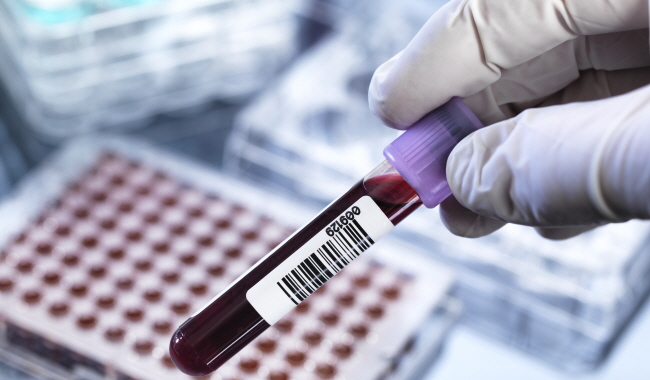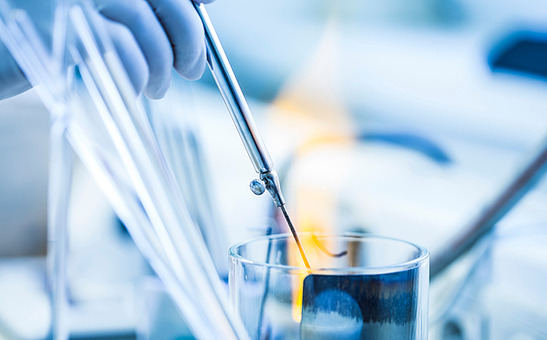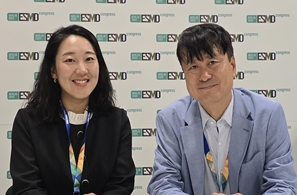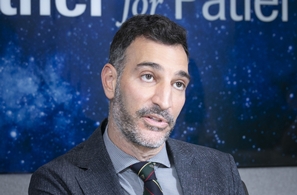- Who will succeed in COVID-19 treatment?
- by choi-sun | translator Choi HeeYoung | Mar 25, 2020 06:01am
Among the treatments, Gilead Sciences entered Phase III of clinical trials, and in the field of vaccines, it entered Phase I by Moderna Therapeutics. However, it is not the first to release it because it may fail clinically.
Among the other candidates that follow, the mechanism is slightly different, and it is also a concern that they may be able to get the title of a COVID-19 treatment or COVID-19 vaccine.
▲Treatment = Pre-Clinical ~ Phase III
There are two ways to respond to the COVID-19. There is a 'therapeutic agent' that suppresses the proliferation of the virus after infection, and there is a 'vaccine' that focuses on preventing infection.
COVID-19 is a type of RNA virus that shares its roots with SARS and MERS. A similar principle is that previously used Ebola treatments are used to treat COVID-19.

On the 26th of last month, Gilead started phase III of Remdesivir in the United States and China, followed by investigational new drug application on the 2nd of this month in Korea and completed clinical preparation. In fact, Seoul National University Hospital on the 9th concluded a clinical research agreement with the National Institutes of Health and started enrolling patients immediately from this day, so it is expected that the results will be confirmed in the first half of this year.
The main goal is whether to lower the boby temperature and get cured within two weeks at the same time. However, it is still unknown whether Ebola virus clinical trials will lead to commercialized products in that it failed with a high mortality rate compared to competing drugs.
The rest of the treatment remains in the Pre-Clinical, except that Remdesivir is in Phase III clinical trials. This means that it takes at least one or two years to confirm the reality.
Johnson & Johnson is approaching COVID-19 as a treatment and vaccine development based on its past experience in developing Ebola and Zika viruses.
Johnson & Johnson is developing a virus-inactivating vaccine at the preclinical stage, and is also working with the Biomedical Advanced Research and Development Authority (BARDA) to develop therapeutics for patients who are already infected.
Through this, it is examined whether existing medicines, such as Remdesivir, an Ebola treatment, Kaletra, an AIDS treatment, and Avigan, a flu drug developed in Japan, are effective in suppressing COVID-19.
US bio-company Regeneron Pharmaceuticals is focusing on the development of antibody therapeutics through genetic engineering.
Although it is still in the preclinical stage, Regeneron plans to develop an antibody therapy against COVID-19 through mouse genetic manipulation technology capable of producing human antibodies. The candidate is expected to go into animal testing soon, and is preparing for human clinical trials by the third quarter of this year. In fact, during the Ebola incident in 2015, Regeneron had experience in developing a mixed-antibody drug that doubled the patient's survival rate.
Vir Biotechnology is also developing antibody-based therapeutics. The difference from Regeneron is that instead of generating antibodies by genetic manipulation, antibodies that are naturally produced after infection with similar corona-like viruses such as SARS in the past are used.
In fact, this method has been applied to MERS and SARS in the past. A method of collecting serum from a patient who formed a natural antibody and administering it to a serious patient was achieved. Vir Biotechnology is investigating whether the SARS virus is similar to COVID-19, so that antibodies from patients recovering from SARS can be isolated and applied to COVID-19.

▲Vaccine = Pre-Clinical ~ Phase I
Currently, phase I is at the forefront from vaccine development. Modena therafutics developed the vaccine candidate mRNA-1273 only 42 days after the nucleotide sequence of the COVID-19 was confirmed and jumped to the promising group.
mRNA has a mechanism in the body that allows cells to form antibodies on their own. Modena is expected to begin research next month with healthy volunteers in cooperation with the National Institutes of Health (NIH). Once the safety of mRNA-1273 has been demonstrated, Phase II will be undertaken to confirm the effectiveness of the vaccine in hundreds.
However, Modena, which is developing mRNA or mRNA designed for cells in the body to produce antibodies against viruses, has not been approved by the FDA as a related drug.
Except for Modena, vaccines of various mechanisms are still in the Pre-Clinical.
CureVac, like Modena, develops a vaccine that promotes the production of antibody proteins using synthetic mRNA. It is expected to be ready for clinical trials within a few months.
China's Clover Biopharmaceuticals, was transferred its technology to a proprietary adjuvant compound that improves the effectiveness of the vaccine from GSK in February and started developing vaccines. The company is developing a vaccine against infection by injecting a protein that stimulates the immune response and activating body immunity, but the clinical trial plan has not yet been detailed.
Inovio, the United States, has been developing DNA medicines for the past 40 years, and has received subsidies for the development of DNA-based vaccines from the Coalition for Epidemic Preparedness Innovations (CEPI). In partnership with Chinese manufacturer Beijing Advaccine Biotechnology, INO-4800 candidate vaccine is in Pre-Clinical, and clinical trials are expected in the second half of this year.
Sanofi, which has successfully developed a yellow fever and diphtheria vaccine, is working with the BARDA to develop COVID-19 vaccine.
Sanofi aims to create a chimeric DNA vaccine that activates the patient's immunity by mixing a portion of the DNA of COVID-19 with the genetic material of the harmless virus.
The vaccine candidate is expected to be tested in the laboratory within 6 months, and the clinical trial is expected to be available within 1 to 18 months. Sanofi said the technology has been applied to SARS. However, Sanofi expects to take at least three years to get approval.
Experts say it is too early to make a positive outlook, as various therapeutics and vaccines are still in the Pre-Clinical of exploring candidates and evaluating safety.
Professor Ki-seok Jeong of the department of Pulmonology at Hallym University said, "I think it is difficult to cure the drug in the near future. However, in the case of Remdesivir, an ebola drug, it would be better if indications were added as much as it promotes clinical trials in Korea".
"An RNA virus has many mutations, so it is not easy to develop a therapeutic drug and it is more difficult to develop a vaccine. Considering that multinational companies spend ₩1 trillion on new drug development, a government-level investment in development is necessary" he advised.
-

- 0
댓글 운영방식은
댓글은 실명게재와 익명게재 방식이 있으며, 실명은 이름과 아이디가 노출됩니다. 익명은 필명으로 등록 가능하며, 대댓글은 익명으로 등록 가능합니다.
댓글 노출방식은
댓글 명예자문위원(팜-코니언-필기모양 아이콘)으로 위촉된 데일리팜 회원의 댓글은 ‘게시판형 보기’와 ’펼쳐보기형’ 리스트에서 항상 최상단에 노출됩니다. 새로운 댓글을 올리는 일반회원은 ‘게시판형’과 ‘펼쳐보기형’ 모두 팜코니언 회원이 쓴 댓글의 하단에 실시간 노출됩니다.
댓글의 삭제 기준은
다음의 경우 사전 통보없이 삭제하고 아이디 이용정지 또는 영구 가입제한이 될 수도 있습니다.
-
저작권·인격권 등 타인의 권리를 침해하는 경우
상용 프로그램의 등록과 게재, 배포를 안내하는 게시물
타인 또는 제3자의 저작권 및 기타 권리를 침해한 내용을 담은 게시물
-
근거 없는 비방·명예를 훼손하는 게시물
특정 이용자 및 개인에 대한 인신 공격적인 내용의 글 및 직접적인 욕설이 사용된 경우
특정 지역 및 종교간의 감정대립을 조장하는 내용
사실 확인이 안된 소문을 유포 시키는 경우
욕설과 비어, 속어를 담은 내용
정당법 및 공직선거법, 관계 법령에 저촉되는 경우(선관위 요청 시 즉시 삭제)
특정 지역이나 단체를 비하하는 경우
특정인의 명예를 훼손하여 해당인이 삭제를 요청하는 경우
특정인의 개인정보(주민등록번호, 전화, 상세주소 등)를 무단으로 게시하는 경우
타인의 ID 혹은 닉네임을 도용하는 경우
-
게시판 특성상 제한되는 내용
서비스 주제와 맞지 않는 내용의 글을 게재한 경우
동일 내용의 연속 게재 및 여러 기사에 중복 게재한 경우
부분적으로 변경하여 반복 게재하는 경우도 포함
제목과 관련 없는 내용의 게시물, 제목과 본문이 무관한 경우
돈벌기 및 직·간접 상업적 목적의 내용이 포함된 게시물
게시물 읽기 유도 등을 위해 내용과 무관한 제목을 사용한 경우
-
수사기관 등의 공식적인 요청이 있는 경우
-
기타사항
각 서비스의 필요성에 따라 미리 공지한 경우
기타 법률에 저촉되는 정보 게재를 목적으로 할 경우
기타 원만한 운영을 위해 운영자가 필요하다고 판단되는 내용
-
사실 관계 확인 후 삭제
저작권자로부터 허락받지 않은 내용을 무단 게재, 복제, 배포하는 경우
타인의 초상권을 침해하거나 개인정보를 유출하는 경우
당사에 제공한 이용자의 정보가 허위인 경우 (타인의 ID, 비밀번호 도용 등)
※이상의 내용중 일부 사항에 적용될 경우 이용약관 및 관련 법률에 의해 제재를 받으실 수도 있으며, 민·형사상 처벌을 받을 수도 있습니다.
※위에 명시되지 않은 내용이더라도 불법적인 내용으로 판단되거나 데일리팜 서비스에 바람직하지 않다고 판단되는 경우는 선 조치 이후 본 관리 기준을 수정 공시하겠습니다.
※기타 문의 사항은 데일리팜 운영자에게 연락주십시오. 메일 주소는 dailypharm@dailypharm.com입니다.
- [Reporter’s View] ‘Selection & Focus’ to foster K-Bios
- Reporter's view | Hwang, byoung woo









